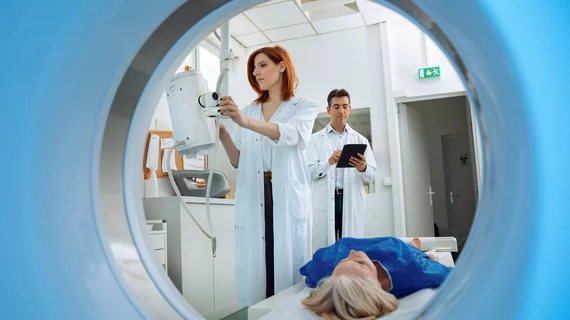Fujifilm lands an expanding install for its enterprise information system
A radiology practice with a national footprint has picked Fujifilm Healthcare Americas to supply workflow management software and related services across the practice’s growing enterprise.
Rayus Radiology, which operates more than 150 imaging centers and manages more than 800 radiologists, says it’s going with Fujifilm’s Synapse Enterprise Information System (EIS) because it’s confident in the company’s capacity to support an organization of Rayus’s size, reach and aspirations.
“Our patients and referring physicians remain our top priority as we continue to accelerate our strategic growth plans, and state-of-the-art technology is critical to delivering the highest-quality care and service,” adds Rayus CEO Kim Tzoumakas in an announcement sent by Fujifilm May 16.
Fujifilm says Synapse EIS is a comprehensive workflow management solution designed with its Synapse Radiology Information System (RIS) as the foundation.
“The robust [EIS] solution delivers enhanced workflow efficiencies, real-time administrative dashboards, patient and provider engagement interaction tools—all of which are suited,” in the present case, “to support Rayus’s national network,” Fujifilm says.
Full announcement here.
More coverage of radiology IT
Denmark’s largest healthcare region to improve imaging diagnostics with solution from Sectra
Top performing radiology IT solutions in the 2022 Best in KLAS rankings
Enterprise Imaging Data Management: Why Your Strategy Must Include the Cloud
Intelerad acquiring Ambra Health, forming $1.7B enterprise-imaging and PACS powerhouse

